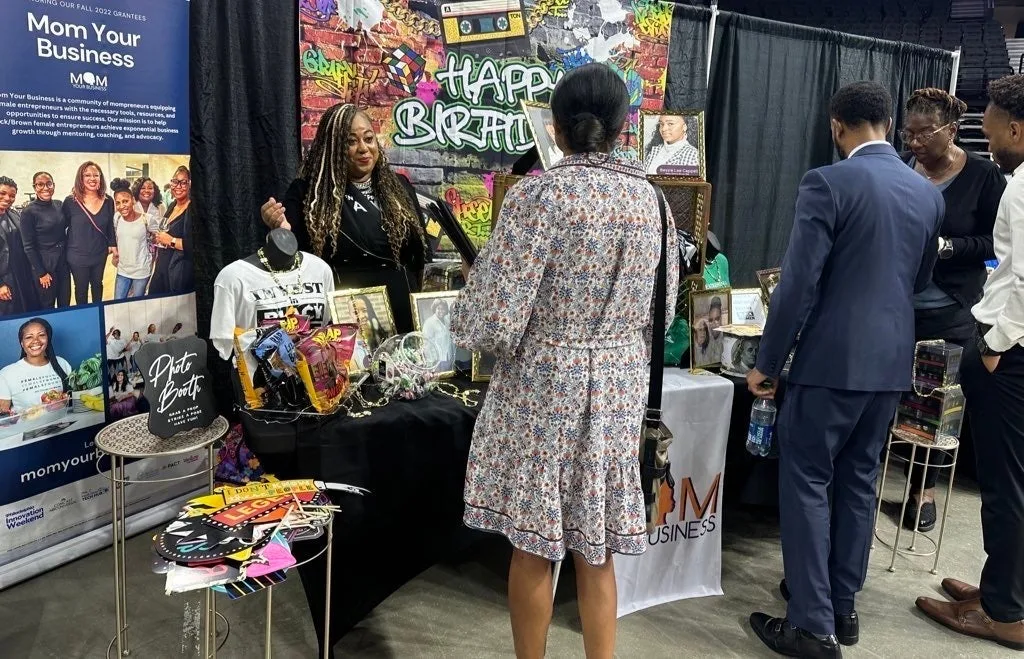
From Philly and the Pa. suburbs to South Jersey and Delaware, what would you like WHYY News to cover? Let us know!
Despite decades of helping small businesses secure capital, the U.S. Small Business Administration noticed an uptick in targeted borrowers under a program that allows nonprofits closest to the community to underwrite loans.
These Community Advantage loans created during the Obama-Biden administration were picked back up by the Biden-Harris administration and are touted as social equity in action.
Now it’s a building block of the SBA’s loan portfolio.
For example, lending to underserved businesses increased by 11% nationwide between fiscal years 2022 and 2023.
Kirabo Jackson, a member of the council of economic advisers to the Biden-Harris administration, told WHYY News that it’s an intentional focus to flow more money into the hands of Black- and brown-owned businesses.
“That’s been a concerted effort to make sure that is the case,” Jackson said. “There’s also additional money to provide technical assistance to small businesses.”
For years, the SBA would back loans underwritten by banks, credit unions, microlenders or even special entities known as Community Development Financial Institutions — meant to increase lending to women, minorities and veterans.
Now there’s a new type of lender: Community Advantage Small Business Lending Companies, of which there are 142 nationwide.
Since the program began, about 2,000 loans have been approved, totaling $347 million.
A big difference is the median loan size of $150,000, which is much smaller than a typical loan.
Most of that loan growth happened during the Biden-Harris administration when lending hit $141 million in fiscal year 2023, up from $86 million in fiscal 2020.
The program parameters changed too — there were previous restrictions that anyone with a criminal record was ineligible — which broadened the potential applicant pool.
The underwriting and collateral needed was streamlined, and unsecured loans available increased from $25,000 to $50,000, all of which was meant to remove barriers for Black and brown business owners, who are less likely to have generational wealth.
The SBA’s Eastern Pennsylvania District Office collaborates with four of those lenders: CDC Small Business Finance Corp., Empire State Certified Development Corp. doing business as Pursuit, Trenton Business Assistance Corp. and in Philadelphia the Women’s Opportunities Resource Center.
About $1.2 million across six community advantage loans was approved by the SBA’s Eastern Pa. District Office in fiscal 2022. Then another $647,000 was approved across five community advantage loans in fiscal 2023.
Jackson, the economic adviser, said the hope is that it’s an economic multiplier for everyone.
“I think we’re in an environment that through a lot of the leadership of this administration to promote small business and make capital accessible it’s hopefully going to lead to overall prosperity that’s shared by all Americans,” he said.
Since the program started, the Eastern Pa. office approved 11 loans worth $1.8 million. In Delaware, six loans were approved worth $925,000, and in New Jersey 60 loans were approved worth $9.5 million.
White House Communications Director Ben LaBolt told WHYY News that renewed focus on minority-owned businesses made a difference in the national economy.
The rate of business ownership among companies owned by Black women increased by 18% between 2017 and 2020, according to the Brookings Institution. By comparison, women-owned businesses overall grew by 9% and Black-owned businesses including men grew by 13% during the same time frame. And that growth rate has continued between 2020 and 2023.
“And it’s had an impact on those communities,” LaBolt said. “Black businesses are growing at their fastest rate in 30 years. Latino business ownership is up nearly 40% since the president took office.”
But that doesn’t mean there’s parity in the market: Black businesses account for less than 3% of employers in the Philadelphia-Camden-Wilmington metro area in 2021, data crunched by the Brookings Institution found.
If Black businesses reflected the population, about 22% of employers would be Black-owned — which means there would be 29,900 more businesses in the Philadelphia region.
WHYY is your source for fact-based, in-depth journalism and information. As a nonprofit organization, we rely on financial support from readers like you. Please give today.


